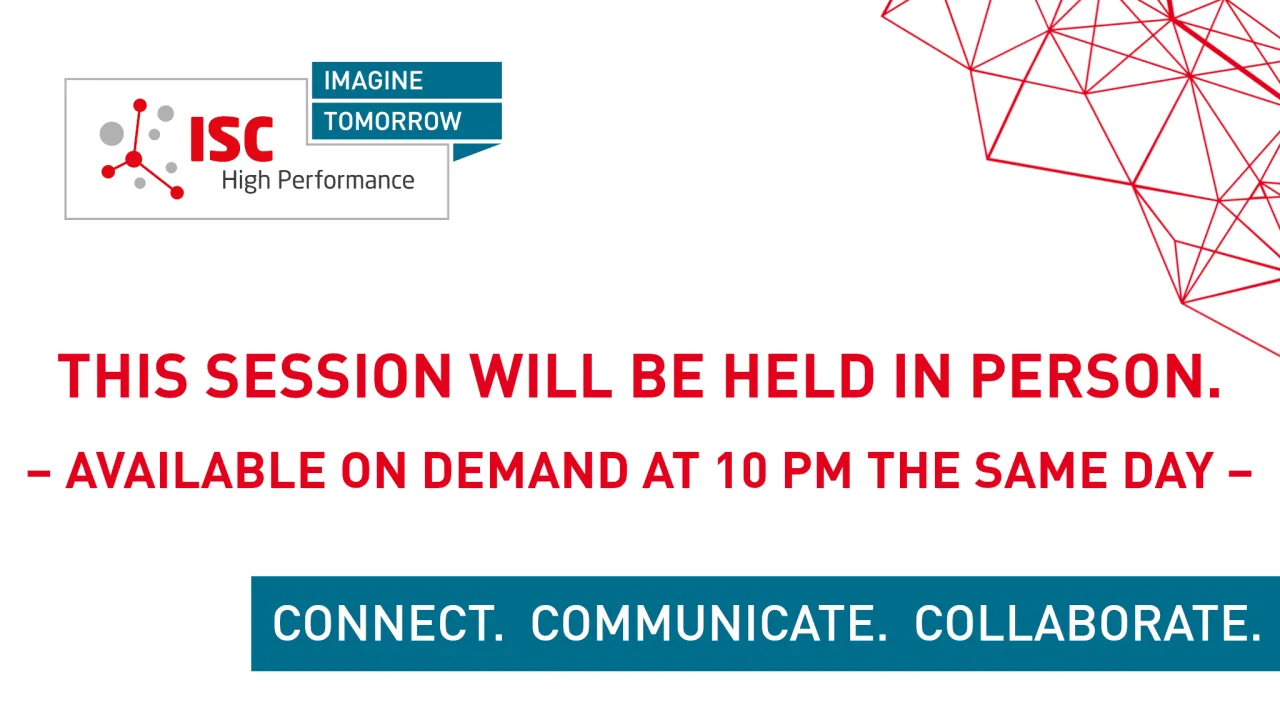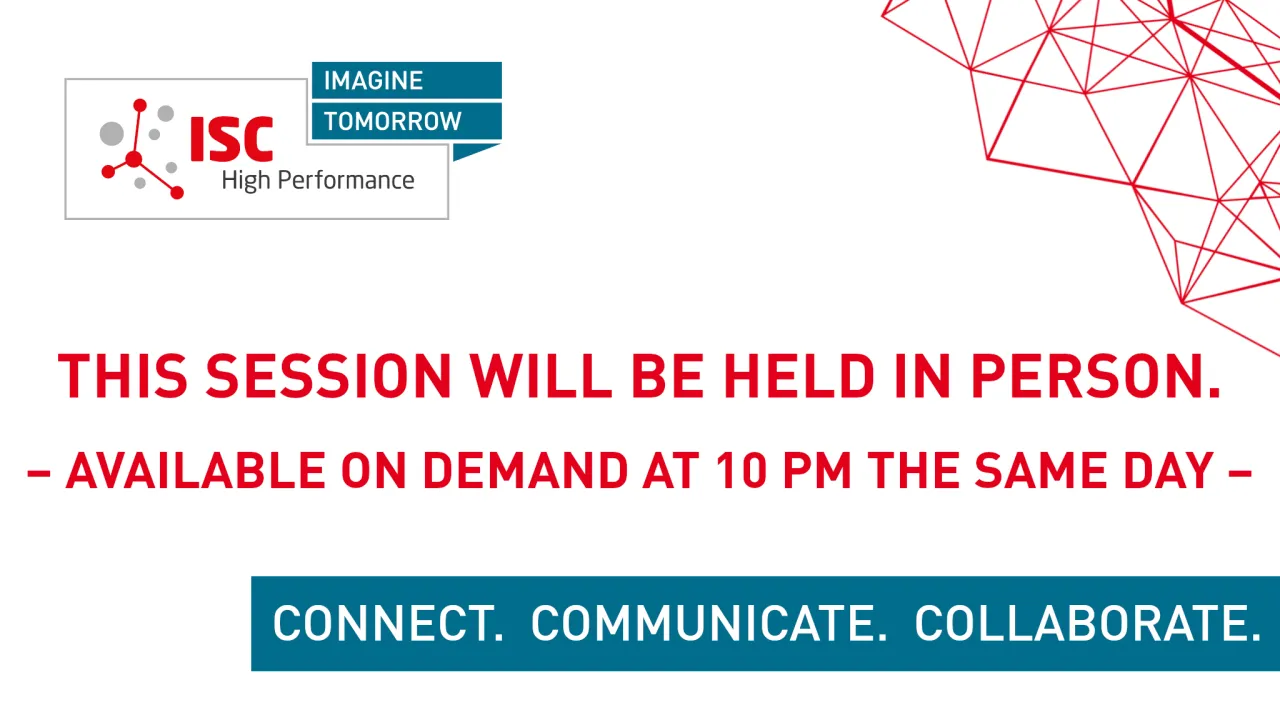

Concurrent Alternating Least Squares and Jackknife Resampling for Canonical Polyadic Decompositions
Tuesday, May 23, 2023 2:20 PM to 2:40 PM · 20 min. (Europe/Berlin)
Hall Z - 3rd Floor
Focus Session
HPC WorkflowsNumerical Libraries
Information
In the domains of matrix and tensor computations, the most typical approach to speed up a workflow consists in optimizing the underlying building blocks, i.e., operations such as the matrix product and LU factorization (for matrices), or tensor contractions and the MTTKRP (for tensors). While undeniably useful and effective, this approach is inherently limited by the rigid interface and boundaries of each individual building block, which prevent multi-operation optimizations. Inspired by a workflow we observed in chemometrics, namely that of fitting repeatedly one same tensor to many different models, we consider the problem of concurrently computing multiple CP decompositions. We recently published CALS (Concurrent ALS) that simultaneously computes multiple CP decompositions of the same tensor using Alternating Least Squares. The arithmetic intensity of the computation is increased by fusing independent MTTKRP operations. When the rank is small, each individual ALS computation is inherently memory-bound, but CALS makes the whole set of computations compute-bound, thus enabling the use of efficient kernels, including offloading to accelerators. We also adapted the idea to support jackknife resampling, a technique used to to estimate the uncertainties in the parameters of CP decompositions. In jackknife, the underlying tensor is nearly, but not exactly, the same. Nevertheless, the idea of concurrent ALS applies, resulting in significant speedups for the entire workflow.
Format
On-siteOn Demand
Beginner Level
30%
Intermediate Level
50%
Advanced Level
20%


